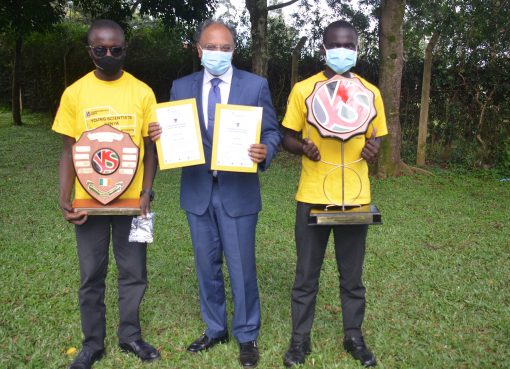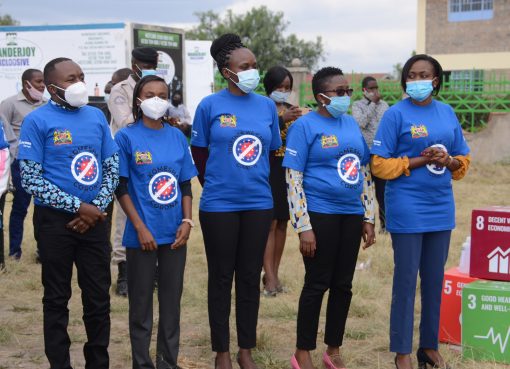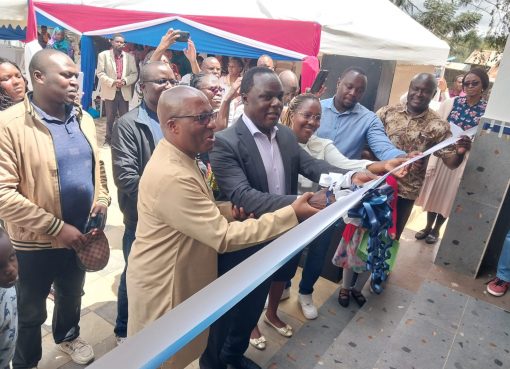John Okumu has been making furniture out of water hyacinth on the shores of Lake Victoria in Kisumu County for decades but access to ready market for his products has eluded him.
The capital and labour intensive initiative almost killed his entrepreneurship spirit, wondering how and where to get financial capital to boost the business as he fought off stiff competition.
However, lady luck came his way with Kenya Export Promotion and Branding Agency (KEPROBA) decentralizing its Export and Business Solution (Dollar Mashinani) programme to the lakeside city to sensitize local residents on available business potential.
The programme seeks to increase wealth among the business fraternity in Western Kenya region in line with Kenya’s 2010 Constitution which ushered in the devolved system of governance.
Speaking at the forum held at a Kisumu hotel this morning, Samuel Matonda, the Chief Executive Officer (CEO), for the Kenya National Chamber of Commerce & Industry (KNCCI), declared that they are focused on bringing hard currency to the grass roots (counties).
Matonda said the Small and Medium Enterprises (SMEs) is a key pillar in the sector accounting for more than 80 per cent of all business activities in Kenya coordinated between the National and County governments.
He said the initiative is also spearheading endurance for the right policy and pushing equity financing on which the business fraternity is advised to leverage on moving forward as the first step towards ensuring that they move the right volume and quantity of product and services.
“You will be connected to the global market spearheaded by KEPROBA using such platforms as the Kisumu forum to get the dollar into your pockets,” the CEO emphasized.
He pointed out that although there are only four products which contribute to 60 per cent of Kenya’s export, KNCCI was working on strategies to increase the number by way of facilitating trade and creating necessary linkages to spur trade and economic growth.
Matonda disclosed that they are targeting 750,000 SMEs spread out in 12 counties in the Lake Region Economic Bloc but challenged members to strive to remain SMEs favor for more than 20 years without diversifying and scaling up into a bigger business entity.
The CEO warned that in business there was also conmanship to which they should remain cautious by way of doing due diligence before supplying any product outside Kenya.
He also encouraged them to initiate inter- and intra-county trade between them by promoting a vibrant business transaction for example the Lake Region Economic Bloc and its neighbours.
Lake Victoria will greatly facilitate the opening of business puritanical in the Democratic Republic of Congo (DRC) which has become the new kid on the block after joining the East African Community (EAC) as the 5th member state.
Peter Ochieng’ of KEPROBA said they have always pointed out the ‘pain’ areas with a view to alleviating the suffering and losses incurred by the traders so as to enable them to perform miracles in terms of recording meaningful success which all starts in forums like that in Kisumu.
Ochieng’ further revealed that they offer grant services as mandated by the National Government and imparted Economic Intelligence in such forums before the SME members can venture out into the global arena.
“We are keen to help our members by removing the trade barriers that frustrated the business fraternity and creating linkages for financial support to enable them to grow into bigger entities,” he added.
Kenneth Murimi, KEPROBA Manager in charge of Intelligence, revealed that Kenya’s export has experienced growth averaging 7per cent per annum from 2010 to 2022. Similarly, our imports for the same period achieved a good rate of growth of 9 per cent per annum resulting in an increase in our balance of trade of 10 per cent per annum.
Murimi said this translated to Kenya’s export values growing as depicted by the trend graph from Sh344.9 billion in 2010 to Sh738.7 billion in 2021. Ten products accounted for about 63.3 per cent of the share of merchandise exports for 2021 compared to 68.9 per cent in 2020.
Key exports products in 2021 included: Tea, Horticulture, Mineral fuels and Oils, Textile and clothing accessories as well as coffee. All the above accounted for 49.6 per cent (2021) of the total export compared to 51.7% in 2020.
By Joseph Ouma and Joseph Otieno





